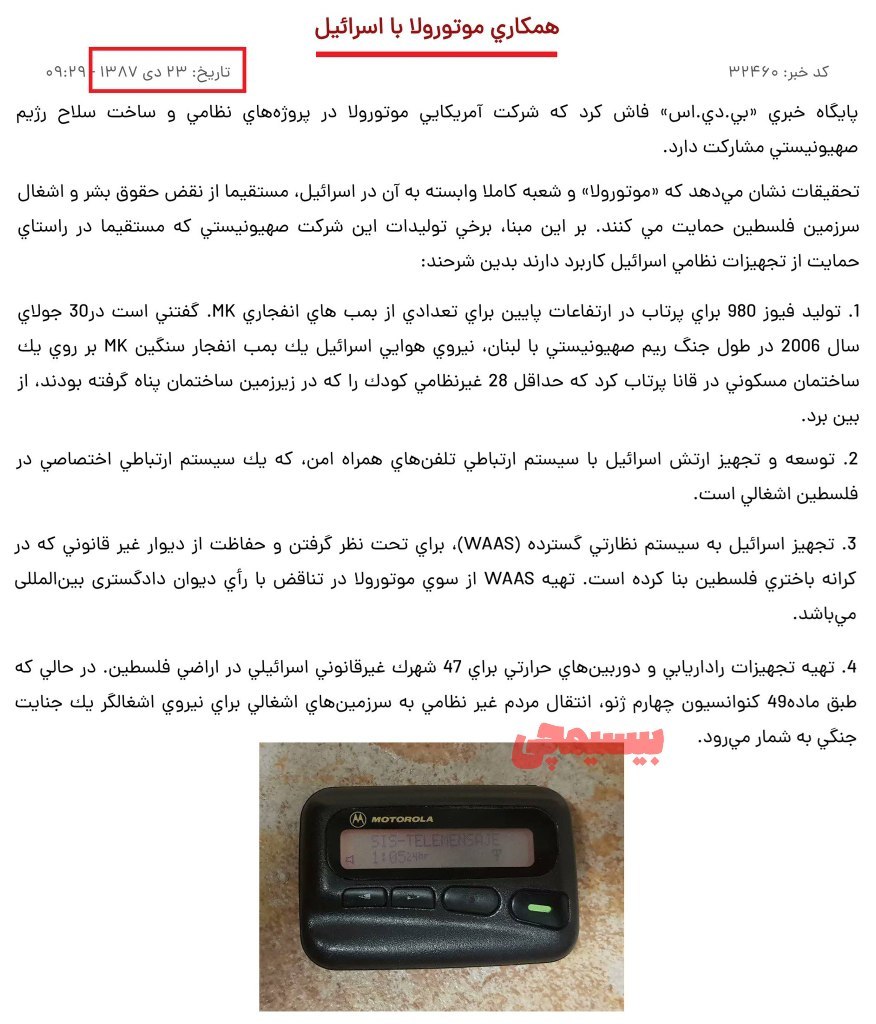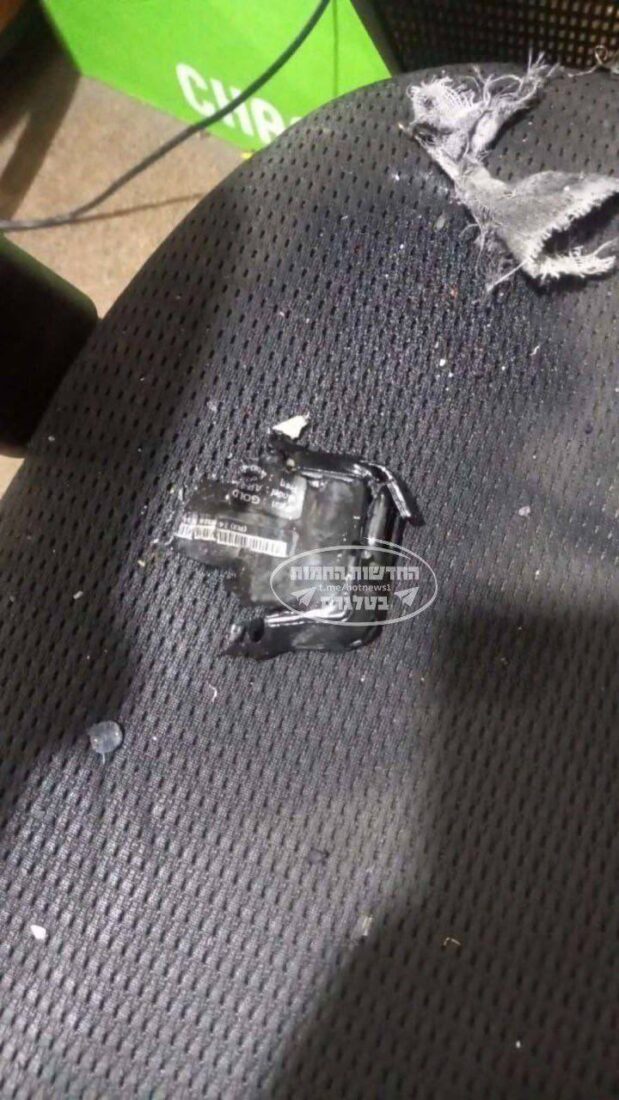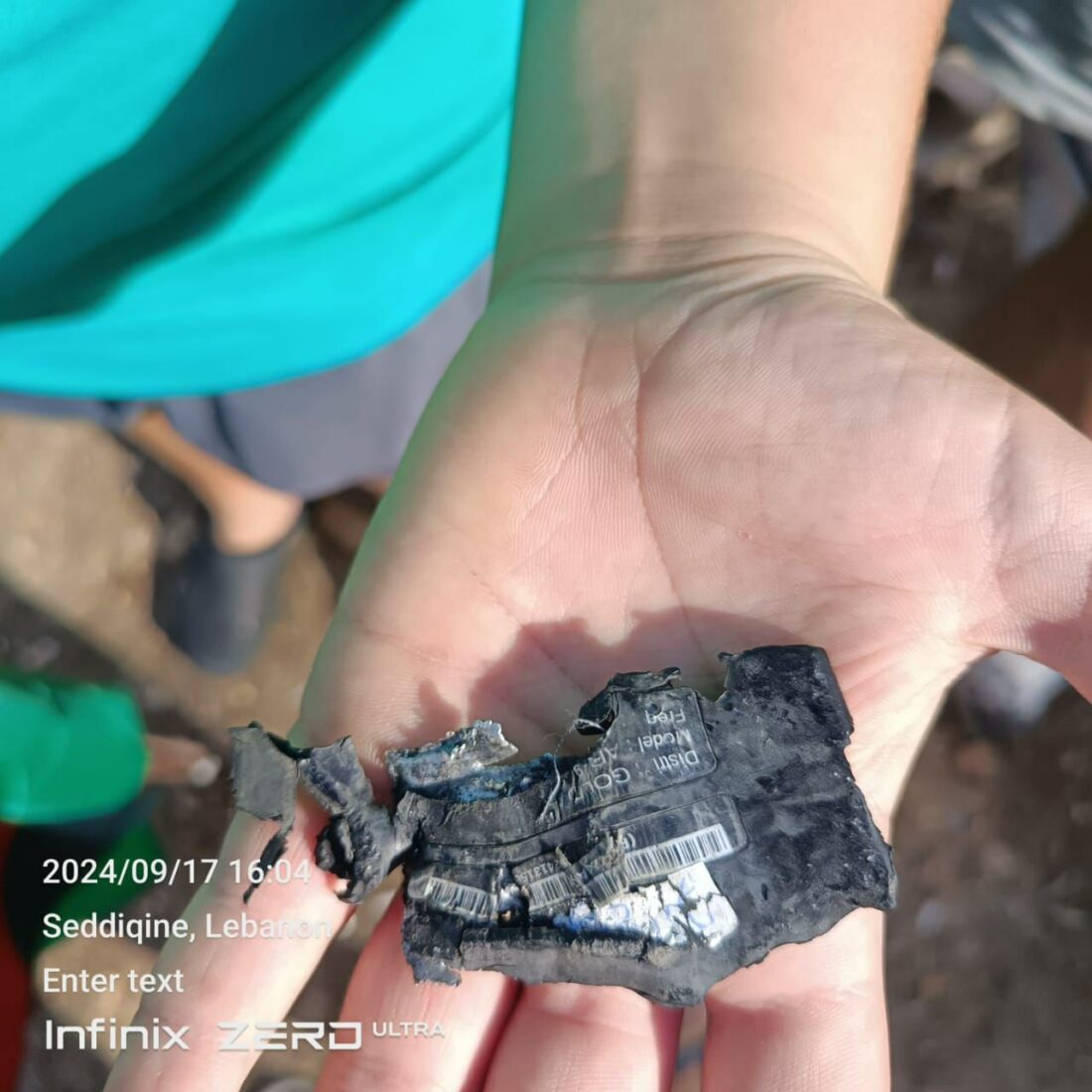This is how Israel targeted Hezbollah members with their own pagers
 Screenshot from a video that show the moment of explosion, causing shopper is knocked onto the ground by the detonation. (Phot via X)
Screenshot from a video that show the moment of explosion, causing shopper is knocked onto the ground by the detonation. (Phot via X)
Multiple Hezbollah members were injured in Beirut’s southern suburb of Dahieh and other regions of Lebanon after the group’s communication devices exploded. Reports say at least 2,800 were wounded, with 200 critically injured, and 9 dead.
Many videos are being shared online, but due to their graphic nature, only a few can be shared. Reports suggest Israel either hacked the devices to trigger the explosions or deliberately distributed sabotaged units. This attack is expected to disrupt Hezbollah’s communications and have a strong psychological effect.
According to Lebanese media and reports by Sky News Arabia, the explosions were allegedly caused by Israeli hacking of portable pagers. But how can such a thing happen?
More than 4000 injured in coordinated pager explosions in Lebanon
Reports indicate that 4000 Hezbollah members were injured in the explosions, which took place not only in Dahieh but also in other areas across Lebanon. The explosive devices, believed to be pagers, detonated simultaneously in the hands of Hezbollah operatives. The attack is seen as a significant breach of Hezbollah’s internal communication network.
Widespread reports are suggesting that Israeli intelligence may have hacked the pagers used by Hezbollah, causing them to explode. The devices, which operate via radio signals from a paging network, were likely compromised remotely, raising speculation that Israel might have infiltrated the service provider handling these communications. If confirmed, this would represent a significant intelligence operation against Hezbollah by Israel.

A senior military intelligence official and a representative of a Lebanese group familiar with the matter, both speaking to the Associated Press (AP) on condition of anonymity due to the sensitivity of the situation, confirmed that pagers used by Hezbollah members had detonated. The second official suggested the incident was believed to be an Israeli attack.
According to Lebanon’s state-run National News Agency, the explosions occurred in Beirut’s southern suburbs and other regions, where “the handheld pager system was detonated using advanced technology, resulting in numerous injuries.” It remains unclear if there were any fatalities.
Blaming Israel for the incident, the Hezbollah official said, “The enemy (Israel) stands behind this security incident.” He further explained that the pagers in question were equipped with lithium batteries, which seemingly overheated and caused the explosions. “Lithium batteries, when overheated, can smoke, melt, and even catch fire,” he added.
Israeli intelligence might have sent intense signals to Hezbollah’s pager devices, causing the batteries to overheat and explode in a coordinated manner.
Sources speaking to Sky News Arabia told that the Israeli intelligence placed a quantity of highly explosive PETN on the batteries of the explosive devices, detonated it by raising the temperature of the battery enough to explode.
Allegations of Israeli involvement in explosions
The nature of the attack has sparked questions about its purpose. Some analysts suggest that the operation could be a precursor to a larger offensive against Hezbollah, given the strategic advantage of disabling parts of the group’s communications network. Others argue that the attack may have been designed to send a psychological message to Hezbollah, increasing its fears of what could happen in the event of a full-scale conflict.
Considering the size and potential impact of the pagers, such a coordinated attack could be interpreted as more of a message rather than an assassination.
Israeli media reports that Hezbollah’s latest beepers were brought in recently. According to three security sources, Israeli intelligence either hacked these devices to cause the batteries to explode or deliberately distributed sabotaged devices within Hezbollah. This attack is expected to lead to a partial or complete disruption of Hezbollah’s communications and have a significant psychological impact on the organization.
Lebanon’s crisis operations center, which is run by the health ministry, asked all medical workers to head to their respective hospitals to help cope with the massive numbers of wounded coming in for urgent care. It said health care workers should not use pagers.
Iran’s semi-official Mehr News Agency reports that the country’s ambassador to Lebanon, Mojtaba Amani, was wounded by a pager that exploded.

Israel probably carried out such a sophisticated attack by sending so many signals that the pagers exploded. The wide cover of this attack is also on the reports. Some reports claim that members of Hezbollah in Syria were also injured due to alleged Israel’s hacking and exploding of the pager devices used by Hezbollah.


Sending message to Hezbollah?
This attack may have been intended solely to send a message, with the pager devices lacking user identification and only showing a signal code at the end. Israeli intelligence officers might currently be analyzing footage from the area to identify Hezbollah operators involved.
Some social media accounts close to Hezbollah already shared a warning not to publish footage about the incident by saying, “Any picture, name or information circulating on social media about the injured, the numbers and the areas of infection is information that the enemy is waiting for to identify those concerned and expose the gathering places and numbers.”
Lebanon’s Internal Security Forces also confirmed the incident with a social media post published on X, formerly Twitter, by saying, “Certain types of wireless communication devices were bombed in several Lebanese regions, especially in the southern suburb, resulting in injuries. Therefore, the internal security forces request citizens to clear the roads to facilitate the first aid of the injured and their transfer to hospitals.”
How pagers work: Vulnerable communication tool?
Pagers, also known as beepers, are wireless communication devices that receive and display alphanumeric or voice messages. They operate by receiving radio signals from transmitters, and in this case, it is believed that the devices were hacked to receive malicious signals, leading to the explosions.
Pagers are commonly used in critical industries due to their reliability, even in situations where cellular networks fail.



